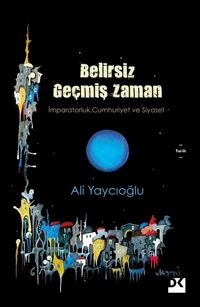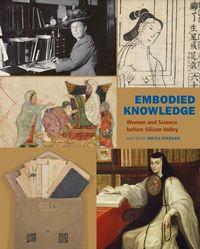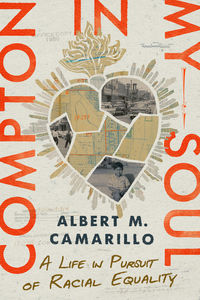Undergraduate Research Mentorship Program in History
The 2023-24 application cycle has closed. Please check back in Autumn 2024 for the 2024-25 deadline.
The History Department is offering several paid research opportunities for Stanford undergraduates to participate in a faculty-led research project over the 2024 Winter and Spring quarters. Student researchers will work directly with a faculty member on their current research, gaining significant experience in developing a research project, identifying and pursuing research leads, and delivering tangible, meaningful reports. Student researchers will meet regularly with the faculty mentor for guidance, feedback, and discussion. The research experience will culminate in a research presentation by the student and faculty at the end of the academic year. Student researchers will be expected to participate in this experiential learning opportunity for up to ten hours per week, and will receive a stipend of $1800 in Winter and $1800 in Spring.
Student researchers do not need to be History majors, but they must have taken at least one History department course. No research experience or specialized skills are necessary unless noted in the project descriptions below.
Interested Stanford undergraduates should submit (1) a paragraph outlining their interest in participating in the program, (2) a list of History course(s) taken, and (3) a CV, indicating any background experience or language skills they may wish to highlight. Applicants may choose to indicate up to 3 projects from the descriptions below for which they wish to be considered.
Submit the paragraph, course list, CV, and possible projects via this application form by 11:59pm Monday, November 27, 2023. Contact Kai Dowding (kdowding [at] stanford.edu (kdowding[at]stanford[dot]edu)) with any questions.
AY 2023-24 Projects:
Arbitrating Race
Faculty Mentor: Pedro Regalado
Project: Professor Regalado is undertaking an archival survey for a book project that reinterprets the history of Latinx America between the 1960s and 1980s. To make sense of a period marked by profound economic, political, and demographic changes, the book connects two phenomena often isolated into separate conversations: postwar Latinx urbanization and the rise of Latinx politics at the national level.
Research Tasks: Over the course of two quarters, the student researcher will survey three archival collections at Stanford that help to fill in the picture for Latinx life in the American West and Southwest during the 1970s. The project will primarily focus on the efforts of social service organizations to connect urban Latinxs with federal resources. The collections include the Benjamin F. Holman papers, the Henry Santiestevan papers, and the Siobhan Nicolau papers. No previous experience is necessary, only patience and a hunger for archival research!
Gender and the First Black Republic: Women in the History of Haiti
Faculty Mentor: Rachel Jean-Baptiste
Project: Professor Jean-Baptiste is undertaking a digital survey to identify and analyze visual and text-based source materials and build a database of these source materials to chronicle women in the history of Haiti from its transition from a French colony in the late 1700s to today. The Haitian Revolution which ended in 1804 had global repercussions and established the first black republic in global history, and yet how women experienced and participated in the making of this new society has been overlooked by scholars.
Research Tasks: The student researcher will support research for Professor Jean-Baptiste’s new book project on women and politics in Haitian history, but also contribute to a pilot project in digital humanities – a website that will be accessible to researchers anywhere in the world to access these source materials. This requires the ability to understand written French (Haitian Kreyol and Spanish also desirable, but not required) and the capacity to build or gain the understanding of how to build a database and website. The student will gain experience in research skills, specifically searching archival databases and web-based sources which consist of both published and unpublished texts and visual images (lithographs, paintings, and posters). The student will also gain experience with analyzing and organizing 18th, 19th, and 20th century documents that may be handwritten or typed, experimenting with the effectiveness of human and AI tools. The student will engage with the skills of searching for and uncovering the experiences of women - of varied origins, racial identities, and socio-economic statuses – who have been overlooked in scholarly analysis.
Muslims in the Catholic Imagination: Islam and Popular Culture in Ireland and Mexico
Faculty Mentor: Robert Crews
Project: This project will explore how Irish and Mexican writers, journalists, memoirists, artists, and musicians—as well as readers and consumers of various media in Ireland and Mexico—have imagined their relationship with Muslims and Islam.
Research Tasks: Depending upon student interests, the research could focus on any moment(s) from 1850 to the recent past and any type of historical documentation, ranging from memoirs or journalistic accounts, for instance, of the Crimean War or the Indian revolt of 1857 to contemporary Turkish telenovelas on Mexican TV and Irish murals pledging solidarity with Palestine. Among many other points of entry, students might analyze Irish ballads about the British empire and its Muslim-populated possessions, Mexican writers imagining a past tied to Muslim dynasties in Spain, or many other related themes across various genres. This research makes up one part of a broader project on the emergence and evolution of Muslim minority communities across the globe in the modern era. Ideally, the student researcher would have a solid reading knowledge of Spanish to navigate Spanish-language texts, though extensive translations will not be necessary. In addition to having some very rudimentary exposure to the study of "Orientalism" (in Edward Said's formulation), the student researcher should also be interested in exploring how an eclectic body of sources (songs, murals, TV, plays, news reportage, novels, and plays) might offer an understanding of the politics of religious difference in two predominantly Catholic countries living in the shadow of imperial neighbors.
Photography and Religion in Southern Africa
Faculty Mentor: Joel Cabrita
Project: This project invites undergraduates to be part of creating a digital archive of photography and religion, situated between Stanford, CA., and Johannesburg, South Africa. In its widest sense, the project studies the intersection of religion and photography in Southern Africa in the twentieth century and present day. In particular, Professor Cabrita is examining the long history of photographing indigenous Christian communities in Southern Africa known as "Zionists" and "Apostolics." From early colonial ethnographic photographers to documentary photo-journalists of the 1960s to visual artists using photography in the 1990s, these Christians have been the subject of constant visual scrutiny and engagement. As part of this project, the Johannesburg-based photographer Sabelo Mlangeni is in residency at Stanford for three months and the Cantor Arts Center is hosting an exhibition of his photographs of Zionist Christians (Mlangeni is himself a Zionist). Professor Cabrita is teaching a class on photography and curation around the exhibition and has organized a program of talks, discussions, and public lectures featuring Mlangeni and other South African creatives and curators. Cabrita and Mlangeni are jointly curating an archive of Mlangeni's Stanford residency (including photos and audio and video recordings) which they plan to submit to the Stanford Humanities Center Arcade digital salon for inclusion as one of their online "colloquy".
Research Tasks: The student researcher would work with Cabrita and Mlangeni in creating this digital archive. This will include assisting with transcribing and editing the recordings of exhibition-related events and discussions. Although the talks are all in English, there will be quite a few isiZulu words cropping up, so a knowledge of isiZulu would be useful but certainly not required. Similarly, familiarity with transcription software would be useful but not required. Tasks will also include editing short videos and audio recordings (no prior technical knowledge necessary) as well as compiling photo albums of Mlangeni's events. The student resarcher would jointly author a 1000 word introduction to the digital archive with Cabrita and Mlangeni. Finally, the student researcher would be responsible for liaising with Arcade staff and uploading the material to them for review.
Urbano Monte's 1587 World Map: A Rumsey Map Center Exhibit and Website
Faculty Mentor: Paula Findlen
Project: Between January and April 2024, Professor Findlen will be working with the Rumsey Map Center to design and install an exhibit about Urbano Monte's 1587 map and his world. The content of the exhibit will be largely created by students in Professor Findlen’s winter seminar, HISTORY 235/335/435, “Global Voyages: Navigating the Early Modern World.” Professor Findlen also expects to produce a small catalogue for the exhibit and would like to work with Rumsey to create a digital version of the exhibit that will be hosted by the Rumsey Map Center during spring (target completion by June 2024).
Research Tasks: The student researcher will create the digital exhibit and more broadly work with Professor Findlen on the project as a whole. Basic abilities in website design (and a willingness to learn whatever skills Rumsey requires to do it on their platform) are important. An interest in early modern history and cartography and exhibit curation is desirable.
Department Bookshelf
Browse the most recent publications from our faculty members.




